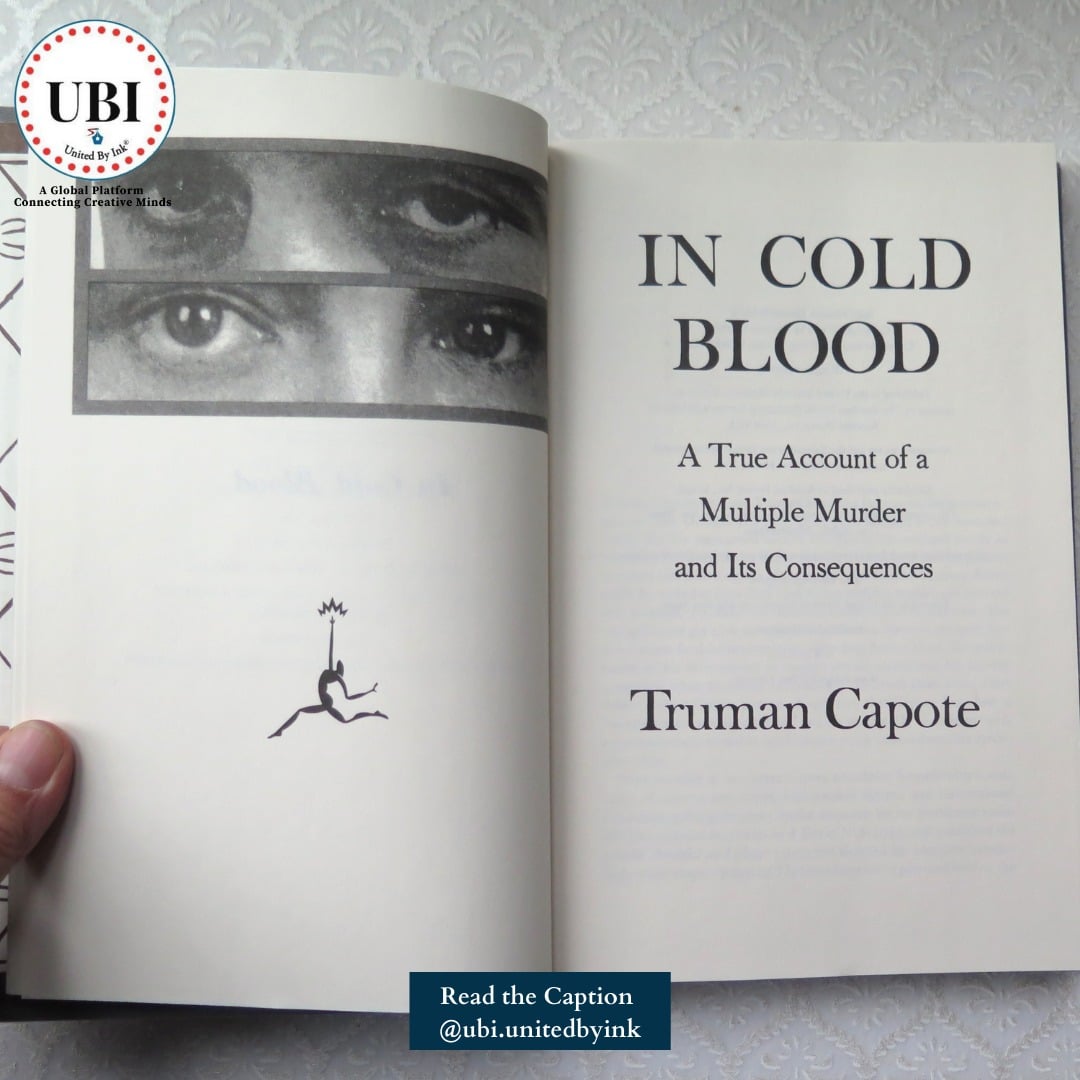
In Cold Blood
Truman Capote
Truman Capote was an American writer whose non-fiction stories, novels, and plays are recognised literary classics, including the novella Breakfast at Tiffany’s (1958) and In Cold Blood (1965), which he labelled a “non-fiction novel.”
In the 1950s and 1960s, Capote remained prolific, producing both fiction and non-fiction. His masterpiece.’ In cold blood’ was published in 1966 in book form by Random House, became a worldwide success and brought Capote much praise from the literary community. After this success, he published rarely and suffered from alcohol addiction. He died in 1984 at age 59.
The book grips a reader with an incredible plot. Overcoat covers Holcomb, Kansas, with his interest. The foundation of this work is horrible wrongdoing. Two as of late delivered convicts, looking for a fortune that did not exist, attack the Clutter family home, tie up the four relatives present and leave no observers. It requires some investment for the culprits to be distinguished, at that point found. Overcoat takes a gander at how the residents respond to this. Many, unfortunate that one of their own was mindful get removed. How do individuals grieve? He takes a gander at the grouping of examination that leads eventually to the catch of the suspects, zeroing in on one of the leading agents. He glances top to bottom at the lawbreakers. What is most important to them? How is it possible that people would do such dreadful things? In perusing this, It helped to remember a portion of the extraordinary all-encompassing fine arts of a time long since passed, works by Bosch, Breughel, in which whole towns were united into one wide-screen picture. This is the thing that Capote has done. However, even with all the domain, he covers there is vast profundity. The overcoat has a fantastic present for language. He composes wonderfully, offering depictions that can bring to tears any individual who adores language. It has the force of verse. This book is genuinely a work of art, a book that characterised another kind of writing.
Having heard nothing of the Clutter murders before perusing this book, the experience of perusing this is extraordinary, holding, and intense from start to finish. Overcoat, with his unbiased composing style, handed-off realities and subtleties to give a total character representation of everybody required: from every one of the Clutters to the specialists, legal counsellors, and surprisingly the actual killers. He did not uncover his estimations or predispositions or even attempt to know directly from wrong. In what he authored a “genuine novel,” Capote splendidly joined the components of an anecdotal homicide novel with original reporting and mental investigation to show the ethical difficulties encompassing the demonstration of homicide.
Inaccessible storyteller depicts the inhumane killings in Kansas in 1956 utilising the family, associates, and local area around the people in question and the hair-raising accounts of Perry and Bobby, the killers. It is a genuine page-turner. The portrayals of the young people of the multitude of grievous heroes are investigated from each point as under an amplifying glass. Without a second thought keeps the reader believing that the vast majority of the new homicide secret shows and films were obliged to this piece of writing (that Capote most likely merited a Pulitzer for, however, was ignored, recuperates, in 1965). There is this bizarre homoeroticism between the two killers (who call one another “sugar” and “nectar”) yet who both spout homophobic words all through, like the legal counsellors.
This book is a genuine work of art of the faithful to live novel (regardless of whether a portion of the realities brought out by Capote was questioned), and its portrayal is tremendous in character advancement and keeping a gigantic measure of anticipation from start to finish. It is considerably more surprising because the peruser realises who perpetrates the wrongdoing. The novel explains the “why”, and surprisingly that is equivocal and pitiable.
How useful was this post?
Click on a star to rate it!
Average rating 0 / 5. Vote count: 0
No votes so far! Be the first to rate this post.

UBI stands for United By Ink®️. UBI is a Global Platform- the real-time social media interactive forum created for Readers, Writers and Facilitators alike.This platform aims to help creative souls realize their writing goals.
Click on our representatives below to chat on WhatsApp or send us an email to ubi.unitedbyink@gmail.com
